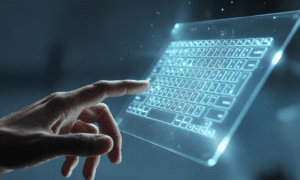Medical Prosthetics Expert Qasim Rahim Predicts Debilitating Spinal Pain May Become a Thing of the Past
Imagine pain-free mobility after years of debilitating back pain. Medical sales expert Qasim Rahim says that future spinal prosthetics are making that dream possible.
One such technology is the artificial spinal disc. This prosthetic preserves flexibility and range of motion for back pain patients in ways that until recently could not be imagined.
A healthy spine can support motion up and down, forward and backward, to the left and the right. For decades, the only surgical treatment for degenerative diseases of the spine took away that flexibility.
People with degenerative disease of the lumbar (lower) spine were treated with spinal fusion surgery, which stopped the pain but took away the ability to move in all directions. Or they were given the first generation of artificial replacement disks with a rigid polyethylene core. These replacement discs were not sound shock absorbers, cushioning other vertebrae, and loosened quickly.
Modern artificial disks have overcome these problems. They imitate the natural motion of the spine. They eliminate lower back pain and restore the ability to bend in all six directions, with a recovery of as little as a week to 28 days.
Disc replacement surgery is never available on demand. Surgeons will insist that patients try non-invasive treatments first. They will be sent to physical therapy, and the surgeon will give the patient a trial of pain medications and pain control devices, such as a wearable pain-blocking device. The surgeon may ask the patient to try a spinal cord stimulator, a small, implantable device similar to a pacemaker. Disc replacement is not possible for patients who have severe osteoporosis, or who have a history of infections and/or sepsis, have facet joint osteoarthritis, or suffer severe spinal stenosis.
But for most people with the degenerative disease of the lumbar spine, potentially restorative treatment is available, FDA-approved, and covered by insurance. Artificial discs have been around for a while, Qasim Rahim notes, but even more treatments are on the way. Artificial disc replacement has been made minimally invasive. Some surgical centers even use robotics for the precise placement of the disc. Patients get out of bed the same day they have surgery.
Modern technology for treating the spine liberates patients from lives of pain. Patients go back to their sports, their hobbies, their jobs, and their lives.
Qasim Rahim is an experienced businessman who plays an important role in creating two new companies, Apex Surgical LLC2 and Vested Spinal Technologies LLC. Rahim received an award for making the Most Outstanding Healthcare Proposal at the UAB Conference in 2019. He is an experienced salesman who enjoys the competitive nature of his career.



































